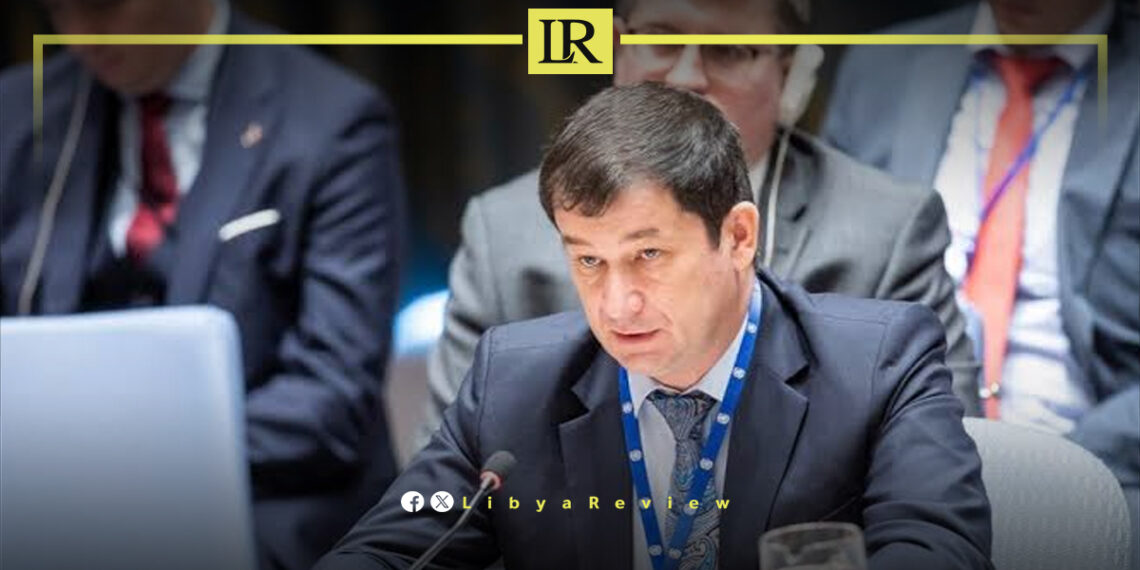In a statement during a United Nations Security Council meeting on Libya, Russia’s Deputy Representative to the UN, Dmitry Polyanskiy, cautioned against excessive international intervention in the country. He stressed the importance of learning from past international mediations during Libya’s former regime and warned that such interference could have detrimental consequences.
Polyanskiy highlighted the worsening security conditions in Libya, pointing to the frequent clashes between armed groups, which he described as an unfortunate daily reality for Libyans.
“This situation has resulted from the ongoing transitional process while we await the appointment of a new UN envoy to Libya,” he noted, urging UN Secretary-General António Guterres to expedite the nomination of a suitable candidate to replace the former Special Representative, Abdoulaye Bathily, who resigned months ago.
Despite Libya’s deepening political divisions, Polyanskiy expressed cautious optimism about recent developments, including municipal elections. He noted that voter turnout was high, reflecting the Libyan people’s engagement with the future of their country.
Polyanskiy criticized Western nations for failing to resolve disagreements among themselves regarding Libya. He cited a recent consultative meeting organized by the UK’s Wilton Park think tank, affiliated with the British Foreign Office, as an example.
“This meeting excluded key stakeholders, including some influential Libyan representatives,” he said. “While a roadmap for resolving the Libyan crisis was discussed, the absence of inclusivity undermined the process.”
He also criticized the participation of the Acting Head of the UN Mission in Libya in the meeting, stating that it failed to send the right message to Libyan stakeholders.
Polyanskiy argued that such initiatives undermine the credibility of the UN Security Council and contribute little to resolving Libya’s crisis. “These efforts offer no added value and, in fact, may hinder the progress of helping Libyans achieve a comprehensive settlement,” he asserted.
As Libya continues to grapple with political instability and security challenges, Polyanskiy’s comments underscore the need for a more balanced and inclusive international approach. The success of any initiative, he suggested, depends on empowering Libyans to lead their country toward peace and stability, free from excessive external interference.


